Magnesium is an essential element involved in multiple chemical reactions in the body.
Although many common foods are full of magnesium, our body can neither store nor synthesize it. It is therefore necessary to ensure that we supply our body with enough of it and constantly. But unfortunately, this is not easy!
Our lifestyle (often stressful), our eating habits or even the practice of regular physical activity are all factors that can promote a magnesium deficiency. It is estimated that 75% of French people are lacking in magnesium.
So to stock up on magnesium and maintain your well-being, follow the guide!
What is magnesium?
Magnesium is a mineral essential for the proper functioning of the organism present in teeth, bones, cells (intra and extracellular), blood, muscles, and liver, as well as certain tissues soft.
Historically, the term "magnesium" comes from the name " Magnesia", a Greek city where there were deposits of bicarbonate of magnesium.
Humphrey Davy, a British-born chemist, succeeded through the electrolysis method (process which consists of decomposing particles using an electric current) to isolate magnesium at the beginning of the 19th century. The importance of this mineral was only discovered in 1926 by a researcher French.
Involved in more than 300 enzymatic reactions, it operates in association with potassium, sodium and calcium. It provides energy, keeps cells healthy, regulates pressure arterial and improves muscle resistance and bones. We simply cannot live healthy lives without magnesium!
And since the body is not able to produce it, it is essential to ensure sufficient intake.
What are the main sources of magnesium?
Magnesium is found in a number of foods of plant origin:
· legumes: black and white beans, lentils...;
· green vegetables: cabbage, lettuce, spinach, etc.;
· dried fruits: cashew nuts, hazelnuts, almonds...;
· whole grains: oats, brown rice, millet, quinoa... ;
· dark chocolate.
At first glance, it seems easy to get tired of it, doesn't it? And Well unfortunately, not really. Soil degradation and the industrialization of the agri-food sector has the consequence of reducing the natural mineral content of foods, including magnesium.
Other factors such as stress, overwork, activity intense sports, as well as the consumption of caffeine, sugar and alcohol lead to a drop in the body's magnesium levels. This is as well as birth control pills and some antibiotics.
It is estimated that nearly 3 out of 4 French people have insufficient magnesium intake, which exposes a considerable number of people at risk of deficit.
Our Recommendation: our Multi Magnesium
For optimal absorption and targeted effects, we recommend our Multi Magnesium. It combines magnesium bisglycinate, taurate, and malate for maximum absorption.
✅ 300 mg of magnesium per dose
✅ With taurine, vitamin B6, vitamin D and vitamin B complex
✅ Made in France
How do I know if I am deficient in magnesium?
In order to maintain its balance, the body needs an intake daily magnesium intake. This promotes the proper functioning of the body.
Although it is not always easy to diagnose, several Symptoms that can help detect a magnesium deficiency:
1. fatigue, irritability, nervousness;
2. stress ;
3. nervous fragility;
4. sleep disorders;
5. digestive disorders;
6. headaches;
7. high blood pressure;
8. joint discomfort;
9. muscle spasms.
Signs of a lack of magnesium are sometimes difficult to identify; do not hesitate to consult a healthcare professional if in doubt.
What are the magnesium requirements?
Magnesium requirements vary by gender and age. Recommended Dietary Allowances (RDA) for magnesium are 6 mg per kg of body weight per day. This therefore corresponds to an intake of 120 mg per day for a child of 20 kg, 360 mg per day for an adult woman of 60 kg and 420 mg per day for an adult male of 70 kg.
It should be noted that the recommended intakes are higher in pregnant or breastfeeding women, in the elderly, in athletes as well as in stressed or tired people.
What are the benefits of magnesium?
Magnesium is an essential nutrient that acts in several ways ways on the body. It allows the proper functioning of the heart rhythm (prevents cardiovascular diseases), maintaining blood pressure (fights against hyperventilation, anxiety and nervous tension) and the regulation of blood sugar levels (prevents type 2 diabetes).
Moreover, it also has the ability to relieve certain ailments. such as migraines and premenstrual syndrome. This mineral also has a relaxing action on the muscles and can in particular prevent cramps muscular.
Let’s review its benefits:
He participates in the production of energy
Magnesium plays a key role in the production energy by activating adenosine triphosphate (ATP) in the body, the molecule that fuels the cells of the body.
It reduces stress
Magnesium is essential in the regulation of the nervous system and relaxation muscular.
Sometimes nicknamed the “anti-stress mineral,” Magnesium is involved in the release of serotonin (the "feel good hormone"). serenity”). Serotonin promotes nervous relaxation, improves mood and helps release muscle tension.
It improves the quality of sleep
In case of magnesium deficiency, the production of melatonin can be disrupted. However, melatonin, nicknamed the "sleep hormone", helps reduce the time it takes to fall asleep.
Not only can magnesium make it easier to fall asleep, but it also helps promote deep sleep and restorative by alleviating sleep disorders.
A study showed that magnesium modulates the activity of the neurotransmitter GABA, which promotes relaxation. Another study showed that the action of magnesium helps reduce cortisol, the "stress hormone" » which can disturb sleep.
It helps maintain a normal heart function
One of the most important functions of magnesium is to act on the muscular function of the body, including the heart. It thus helps to regulate the rhythm heart rate, blood pressure and production of cholesterol.
It promotes bone well-being and teeth
Magnesium plays an essential role in maintaining good bone capital. Approximately 60% of the magnesium present in the body is also stored in bones and teeth.
Magnesium helps the body use nutrients efficiently. nutrients essential for maintaining good bone health such as calcium and vitamin D.
Note: The role of magnesium in bone health is becoming increasingly increasingly important with age. Adequate intake in the elderly is therefore essential in order to prevent osteoporosis.
It reduces discomfort muscular
Cramps are painful muscle contractions. playing an essential role in the proper functioning of the neuromuscular system and by helping the body absorb calcium, magnesium helps prevent muscle discomfort, tingling and body aches.
Ideal against muscle fatigue, its action is therefore beneficial both in people with the syndrome restless legs (a syndrome that can affect pregnant women) than in athletes (it facilitates endurance and recovery).
How to choose the right magnesium?
Prone to cramps, irritable, tired? You think suffer from a magnesium deficiency?
In order to rebalance your body's magnesium levels, it is It is important first of all to draw on the resources of a diet balanced diet rich in magnesium. Follow a course of food supplements based on magnesium can then prove very effective.
In the food supplement market, magnesium is comes in several forms. We can distinguish magnesium marine (extracted from sea water) as well as salts of magnesium.
Magnesium salts come in 3 categories:
· Salts soluble organics (citrate, malate, gluconate, pidolate, lactate);
· Salts insoluble inorganic (oxide, carbonate, hydroxide);
· THE soluble organic complexes (magnesium bisglycinate, magnesium taurate, magnesium glycerophosphate).
What sets them apart: their magnesium content, their assimilation, their ability to be tolerated by the body and you will doubt... their price. Don't hesitate to consult our article which presents the different forms of magnesium in order to help you make your choice!
Among the magnesium salts, opt preferably for a cure formulated from magnesium bisglycinate, both very concentrated in magnesium (more than malate) and easily assimilated by the body. It is therefore ideal for having optimal intakes in magnesium and does not cause digestive problems. A magnesium cure bisglycinate will help support your nervous system, decrease fatigue, to regulate metabolism and to support muscle health. With magnesium malate and taurate, you will have the 3 best forms of magnesium on the market, combining bioavailability and digestive comfort!
Now, let's talk about the recommended dose. As we have seen, the daily intake of magnesium is around 360 - 420 mg per day. First of all, you should know that the maximum recommended content in France in supplements is 360 mg per day. But given that Food already provides magnesium, we advise you to opt for a daily cure of 300 mg of elemental magnesium.
Finally, one last criterion comes into play. This is the presence of two active ingredients, taurine and vitamin B6, which thanks to their synergistic action improve the assimilation of magnesium. These are simply must-haves in a magnesium supplement, which is why they are of course part of our Magnesium formula !
What precautions should be taken?
Magnesium can have an unpleasant laxative effect which is can be avoided by taking less than 350 mg at a time with a meal (or opting for a cure of magnesium bisglycinate, taurate and malate 😉).
Also be careful not to consume too much coffee or of tea which can lead to increased elimination of magnesium.
Magnesium: contraindications
Magnesium treatment is not recommended for adolescents and children. under 12 years of age. It is also not recommended for people with kidney failure.
Magnesium intake should not be done at the same time as antibiotics of the quinolone and cycline families, or certain osteoporosis drugs.
Generally, it is recommended to seek the advice of a healthcare professional before taking supplements.












